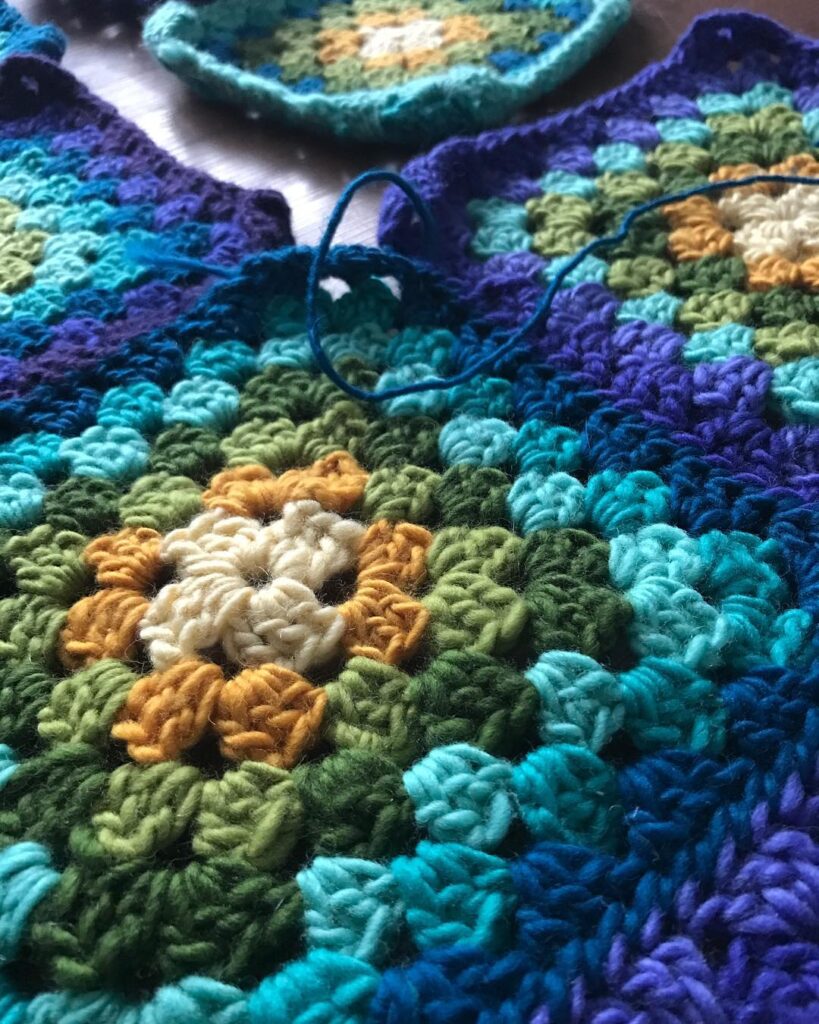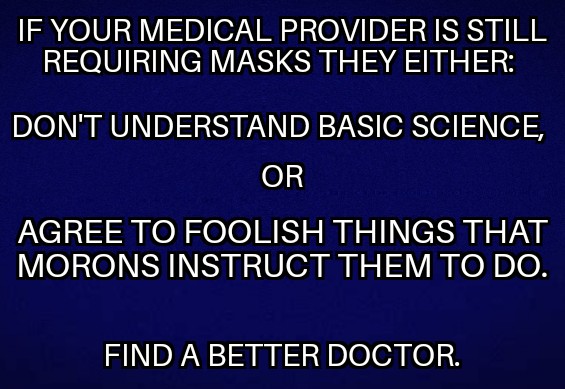Mealtime traffic in our kitchen resembles the streets of New Delhi, with the bonus of weaving through the local wildlife of little boys, teenagers, and cats.
Kavanagh climbs onto a barstool and kicks his legs at the counter in time to the Christmas music. Newly three, the kid eats as though he is an advocate for the neighborhood chickens, leaving out his scraps of bread crust and tortillas to harden, nubs of carrots to darken and shrivel. In frustration over all the wasted food, I designated a container for chicken scraps in the fridge and informed the family about it.

“It’s for bready stuff, grains, and fruits and veggies.” The blank looks that met these words seemed to beg for more specifics, so I added, “Pretty much anything except potatoes, potato peels, onions…”
Eyebrows raised. Maybe it’s too late in the evening to introduce foreign concepts like the Care and Feeding of Neighborhood Chickens, I thought, but forged ahead anyway.
“…and citrus. You can’t give them citrus –”
Vince laughed outright. “That’s a lot of excepts.”
I ignored him and looked at the mess on the counter. “— and pomegranate rinds.” Maybe it would be easier if our neighbors had pigs instead.
We’re planning to get our own chickens in the spring, but don’t think I haven’t already considered pigs, albeit briefly (very briefly) since we don’t have the space. Our property on a bluff with hills is more situated for, you know…goats…since we’re already talking about wild ideas that make Vince laugh out loud.
Lately I’ve been reading every homesteaderly book I can get my hands on. We make small steps every year – a new perennial here, a new skill there – and this year I’m feeling ready for long strides and bolder endeavors. In the middle of winter, right before Christmas, I see green growing things in the future, and fresh herbs in salad.
Sometimes we talk about it in the evenings as we work on the Christmas puzzle, moving all the gardening and foodie books off the card table where they protect the work in progress from the, ahem, local wildlife. Left uncovered, a puzzle in our house will last less than three seconds before little boys “help” by crushing large sections together, and cats tear through it like tiny tornadoes.
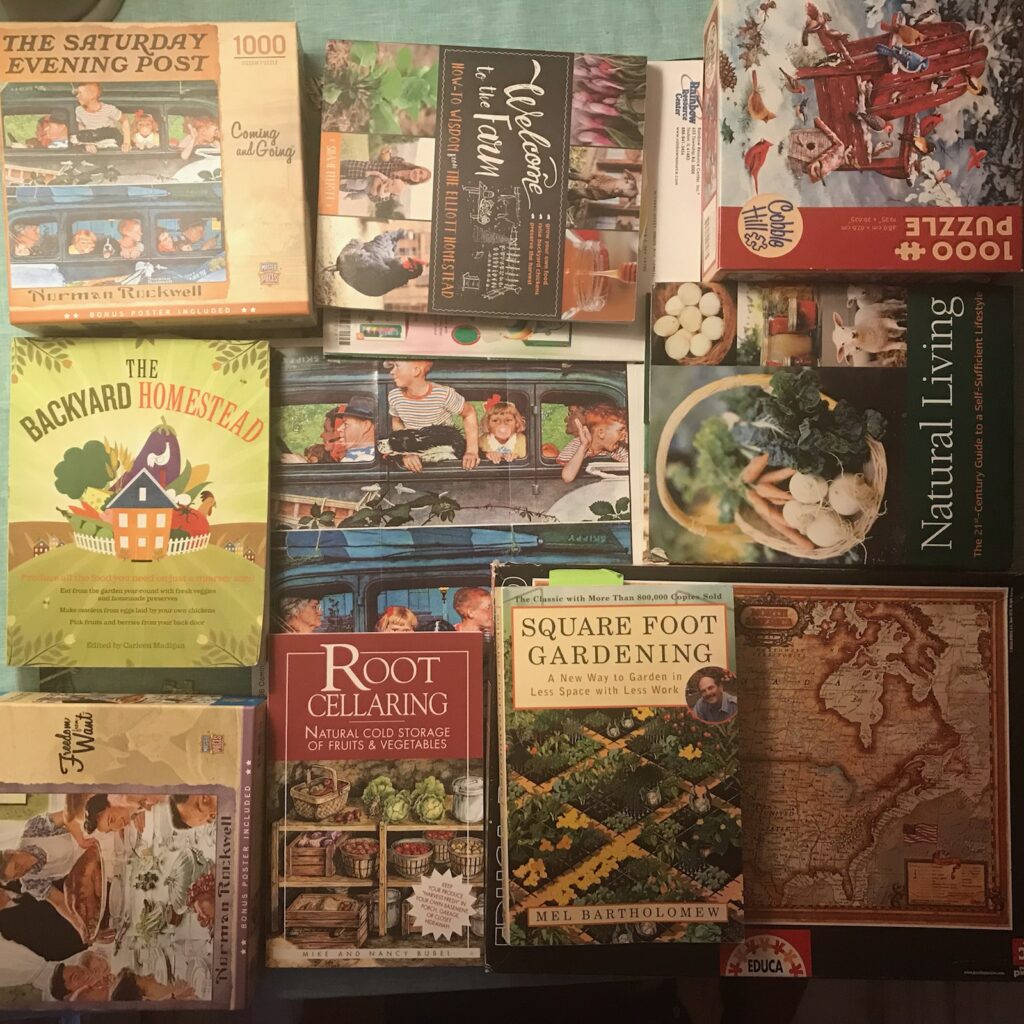
We finished one already and we’re onto the second, called “Coming and Going” by Rockwell. We rake through the box, sorting greens from blues or whites from greys, and searching for the elusive edge pieces we’re missing. A thousand pieces at a time, we solve all the world’s problems at this little card table in theory while thinking about how to steward the acre we live on.
My birthday was last week. I got sick the Sunday before, and blinked, and by Thursday I’d depleted our store of tissue boxes and turned 45.
The timing wasn’t all that bad, because Vin invented something new for the week before Christmas break: Movie School for the big kids. Aside from math, no assignments other than watching a bunch of movies that fall more under the “education” than “entertainment” category for some of us, which is how we got Afton to watch Sense & Sensibility (the good version from 2008), and Iree to watch Glory and Amistad. We had to prioritize, not wanting to miss the best ones because Iree is a senior, and this might be our last Christmas with her here under our roof.
Cue suppressed sobbing, and another box of tissues.
By my birthday we’d watched most of the movies, and my grandma called late that afternoon. She asked the same question she does every year: “How old are you now?” as though I have birthdays as often as bank holidays.
“I’m half your age,” I said, remembering the year she pointed out that our ages mirrored each other.
“Well, how old am I, then? Numbers befuddle me sometimes.” And that surprised me, because her age was a pretty big deal last month.
“You’re ninety, Grandma.” More tissues, egad. “Are you having a good day?”
“Every day is a good day as long as I’m still here,” she said. “Some days I don’t know what day it is, and other days I don’t care what day it is, but every day is a good day.” There’s a Grandma-ism for you. We chatted a little more, exchanged I love yous, and hung up.
I didn’t tell her that a couple hours earlier, my other grandma died. My aunt and I had been texting that afternoon and knew she was probably close. I prayed that God would encounter her in her sleep and draw her near…and I’m confident He answered because it’s something He loves to do. She taught me about sewing and gardening, and introduced me to the biggest poppies I’d ever seen. We just ordered heirloom seeds for next summer, and included three different kinds of them.
My grandpa, her husband, died in October and I wasn’t close to either of them anymore. She didn’t recognize me when she last saw me several years ago, but when Kav was five months old I took him to see Grandpa, and he knew me. It took a few long seconds, and I watched recognition dawn. He held Kav’s tiny hand. I told him they smile the same way. And Grandpa looked away, trying to suppress a smile as he quietly touched his own mouth, the same way Kav still does. As we left, he let me pray for him. And he said thank you, and we exchanged I love yous, too.
And now they are both gone, and Grandma is 90, and I am 45. Little Kavanagh just turned 3.
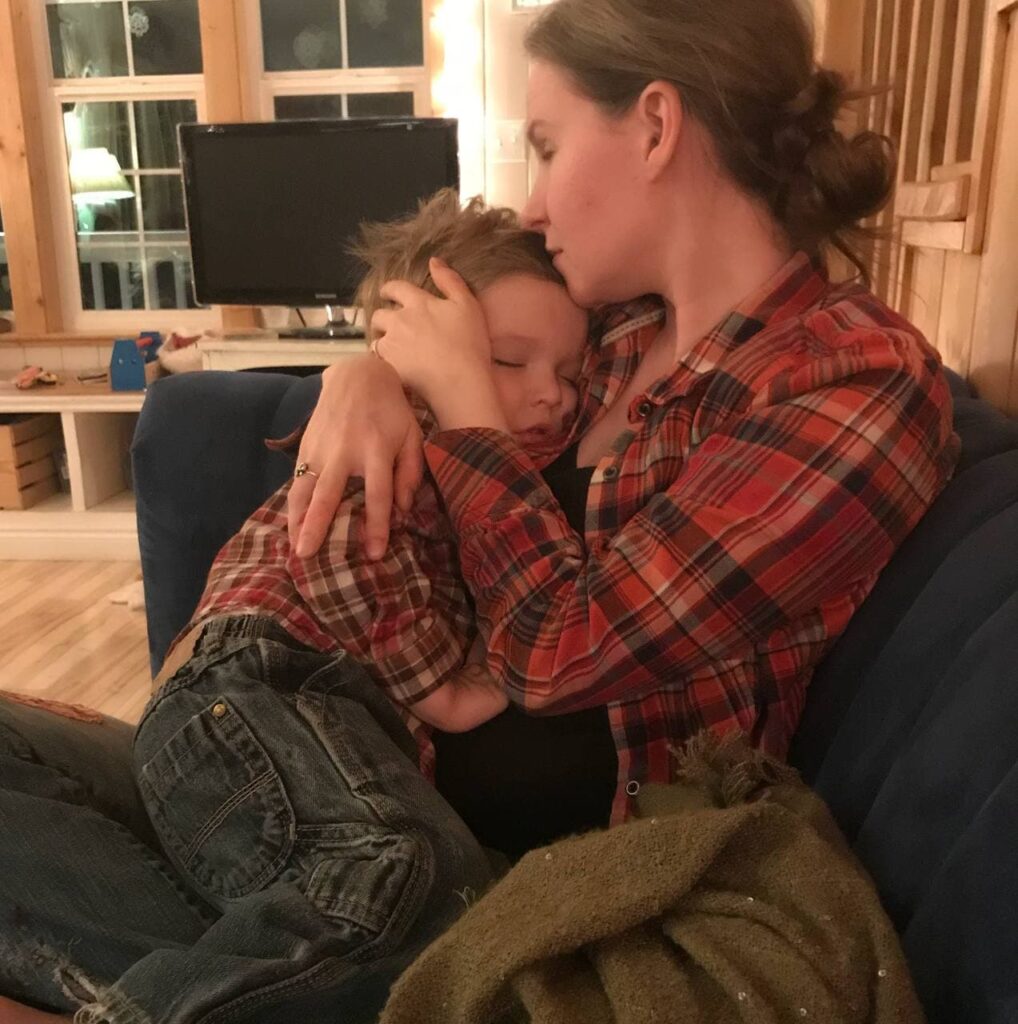
The world is spinning too fast, so I am going to put these pieces together while the snow falls outside, and read about raised beds and chickens.
But I didn’t get far because a delivery truck pulled into our driveway. I ran down the stairs past kids who were running up them, and opened the door to the driver and his assistant as a gust of snow blew in. He gave me a paper to sign, handed me a pen.
“I think it’s the…16th,” the young guy said, eager to help. I smiled and signed my name. Went upstairs, and went back to reading about compost: these elements that die to bring life, but that only do so once broken down properly.
Ash is a good addition to compost, the book says, and I remember that from having a woodstove in our last house. And that’s encouraging, because we’re installing a woodstove in this house next month, and a few more raised beds in the summer, and we’ll need more compost. I see a new plot of carrots, garlic, and cumin, and the need for a wheelbarrow next year.
That night while Vin put the little boys to bed, I made tea for kombucha – this is a skill I know that no longer intimidates. Into the water goes the tea, a pinch of dried plantain, and a small handful of dried dandelion. Stir with the wooden spoon. Grab a sweater and pull it over the flannel. The water starts to boil, turn off the heat. It will sit overnight, cooling, growing stronger. In the morning, I’ll strain the leaves and toss them in the compost before adding the sugar and scoby.
The kitchen is quiet, the traffic stilled. I can hear Vin reading to the boys upstairs. We’ve been talking about how life will change rapidly in the next few years, with another kid or two graduating right after Iree does. In five years, out of eight kids, only half of them will be living with us, and we probably won’t be reading many bedtime stories anymore.
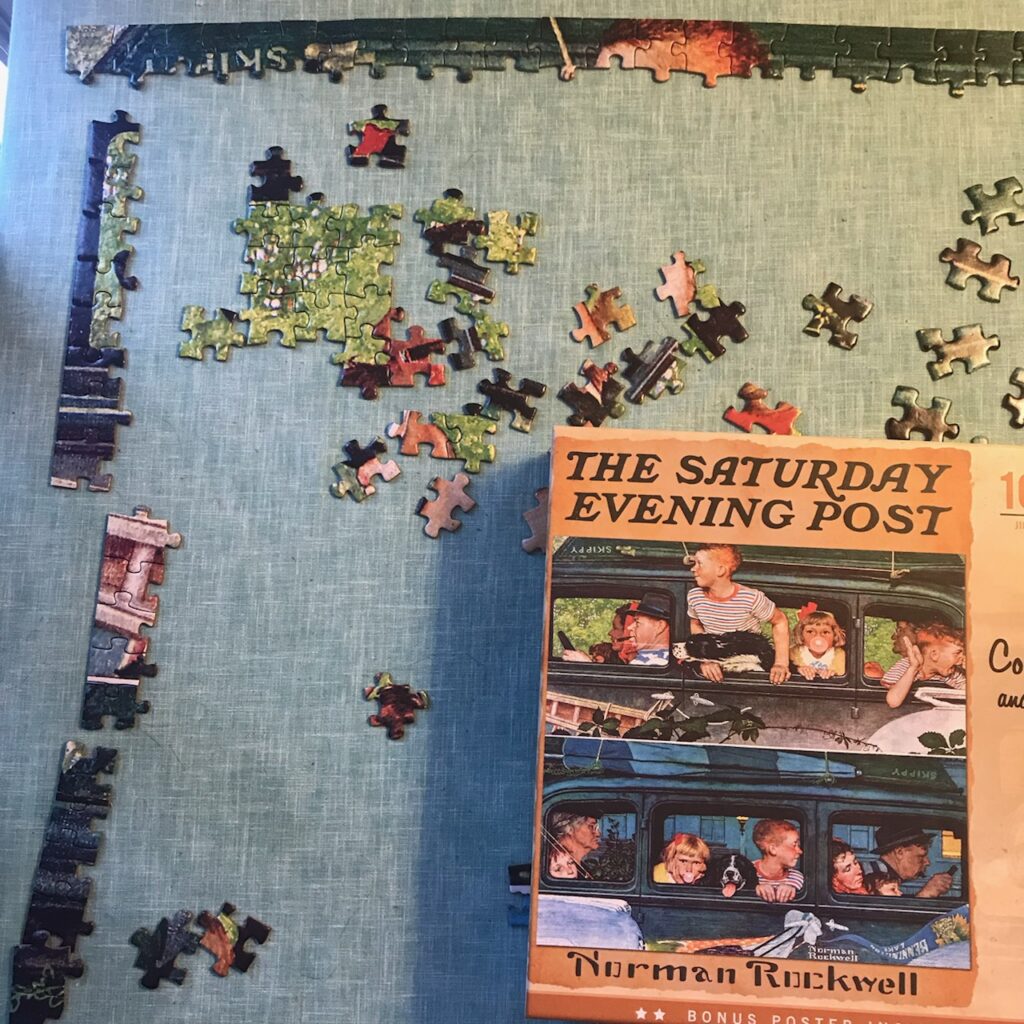
In the middle of the mayhem, I see an emptier house and a less busy kitchen in the future, and small boys growing taller than me, like their brothers.
But I also see their older siblings returning with grandkids to visit. I see them playing in the garden, chasing chickens, and tracking dirt into the kitchen as we weave and dodge their busy traffic. I see reunion and life ahead, and poppies blooming in summer.
_________
_________
Click here to subscribe for free to get my posts straight to your inbox.



